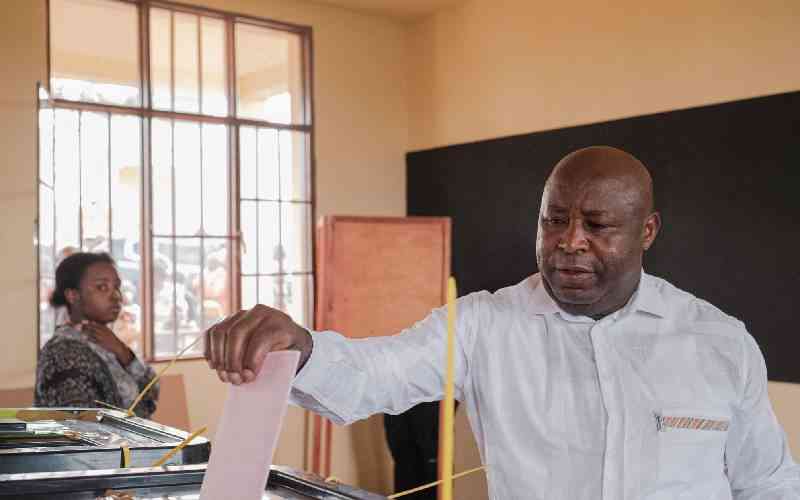Burundi’s ruling party, the CNDD-FDD, has claimed total control of the National Assembly following parliamentary elections marred by allegations of widespread fraud, voter intimidation, and the exclusion of key opposition voices.
The Independent National Electoral Commission (CENI) announced on Wednesday that the CNDD-FDD secured 96.51 percent of the vote in the June 6 poll, earning all 100 seats in the legislature. No other party crossed the 2 percent threshold required for parliamentary representation.
“These results reflect the will of the people,” said CENI president Prosper Ntahorwamiye during a live broadcast. The Constitutional Council is expected to issue final confirmation on June 20.
However, opposition groups and independent observers sharply contested the credibility of the vote, describing it as neither free nor fair.
The National Congress for Liberty (CNL), the country’s main opposition party, was banned from participating. Its members accused the government of orchestrating forced voting, restricting access to polling stations, and jailing election monitors.
“This was not an election. It was a staged event,” said Anicet Niyonkuru, a candidate from the Council of Patriots. He alleged that voters were seen casting pre-filled ballots across multiple constituencies.
Uprona party leader Olivier Nkurunziza echoed those concerns, denouncing what he called a “rigged process” after his party earned just 1.38 percent of the vote. He claimed that CNDD-FDD victories in some districts showed zero invalid votes or abstentions—an implausible outcome, given that Uprona had fielded candidates nationwide.
Journalists and voters, speaking anonymously due to security fears, also reported irregularities, including pressure from local authorities and a lack of transparency at polling stations.
Since taking office in 2020 following the death of long-time president Pierre Nkurunziza, President Evariste Ndayishimiye has projected an image of reform while critics accuse him of entrenching authoritarian rule. His administration has faced repeated accusations of suppressing dissent and manipulating political opposition.
The CNL, which came second in the 2020 elections, has been particularly targeted. In 2023, the Interior Ministry suspended the party over alleged procedural violations. The following year, party leader Agathon Rwasa—a former rebel commander—was removed and replaced by Nestor Girukwishaka, a figure reportedly close to the ruling establishment.
As political space narrows, Burundi continues to face a deepening economic crisis. The World Bank ranks it as the lowest globally in terms of GDP per capita, with three out of four citizens living below the poverty line. Inflation has surged to over 40 percent monthly, and a crippling fuel shortage has persisted for nearly three years.
A Burundian political analyst, who requested anonymity for safety reasons, described the situation as “a convergence of economic collapse and political suppression.”
“The frustration is growing,” the analyst said. “But the system is tightening rather than listening.”
With the ruling party now holding every parliamentary seat, many citizens and observers fear the country is drifting further away from democratic accountability—leaving little room for dissenting voices in Burundi’s fragile political landscape.



